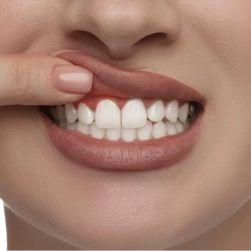The journey to optimal dental health begins with understanding how nutrition impacts your teeth. In the United States, where dietary choices often favor processed foods and high sugar consumption, protecting your tooth enamel is crucial. Tooth enamel is the hard outer layer that shields your teeth from decay and damage. Once it's worn down, it does not regenerate, making enamel protection a long-term commitment. This article delves into the best dietary choices to strengthen tooth enamel, helping you maintain a bright and healthy smile.
The Role of Calcium in Enamel Strength
Calcium is a foundational mineral for strong teeth and bones. Consuming adequate calcium is essential for supporting tooth enamel health.
Foods rich in calcium, such as dairy products, leafy greens, and fortified plant-based options, help replenish the minerals that maintain enamel density and resilience.
In the United States, the recommended daily intake of calcium for adults is around 1,000 mg. Regular consumption of calcium-rich foods should be a dietary priority for those aiming to enhance their dental health.
Vitamin D: Enhancing Calcium Absorption
Vitamin D plays a critical role in how your body absorbs calcium, ensuring that your dietary efforts effectively strengthen your teeth. This vitamin can be naturally obtained through sun exposure and found in foods like fatty fish, cheese, and egg yolks.
A deficiency in Vitamin D can lead to poor absorption of calcium, undermining efforts to fortify tooth enamel. Studies have shown that adequate levels of Vitamin D contribute significantly to dental health by enhancing calcium and phosphorus uptake.
Phosphorus: A Companion Mineral for Bone Health
Phosphorus works closely with calcium to build strong bones and teeth by stabilizing them and enhancing their structural integrity. Sources of phosphorus include meat, dairy, and whole grains.
For strong tooth enamel, it is crucial to maintain a balanced intake of phosphorus to complement the benefits of calcium, thereby ensuring comprehensive enamel support.
Avoiding High Sugar and Acidic Foods
A major dietary challenge for tooth enamel is the consumption of sugars and acidic foods. These elements promote bacterial growth and lead to enamel erosion. Limiting the intake of sodas, candies, and acidic fruits can prevent dental decay.
The American Dental Association (ADA) advocates for reducing sugar intake to support oral health, making it clear that moderation is key in preserving enamel over the long term.
Hydration and Its Impact on Saliva Production
Staying hydrated is often overlooked but plays a pivotal role in maintaining oral health. Water is essential for saliva production, which naturally cleanses the teeth and neutralizes acids that erode enamel.
Regular water consumption, as recommended by dental professionals, can significantly contribute to the protection and strengthening of tooth enamel by supporting consistent saliva flow that washes away food particles and destructive acids.
The Importance of a Balanced Diet
A holistic approach to nutrition that emphasizes a range of vitamins and minerals can ensure comprehensive oral health. A varied diet that includes fruits, vegetables, lean proteins, and whole grains provides the necessary nutrients for maintaining strong enamel.
Research underscores the importance of balanced nutrition in preventing dental problems and fostering an environment conducive to a healthy oral microbiome.
In conclusion, maintaining strong tooth enamel requires a dedicated focus on dietary choices. Prioritizing calcium, Vitamin D, and phosphorus while limiting sugar and acid reflects a balanced approach to dental health. By implementing these nutritional strategies, you create a robust defense against enamel erosion, ensuring your smile remains bright and healthy for years to come. Dentistry Toothtruth encourages readers to take proactive steps in their daily diet for lasting oral health benefits.
Incorporate these dietary recommendations and consult with dental professionals to tailor a personalized nutrition plan. With these actions, you'll be on your way to achieving optimal enamel strength and overall dental well-being.






